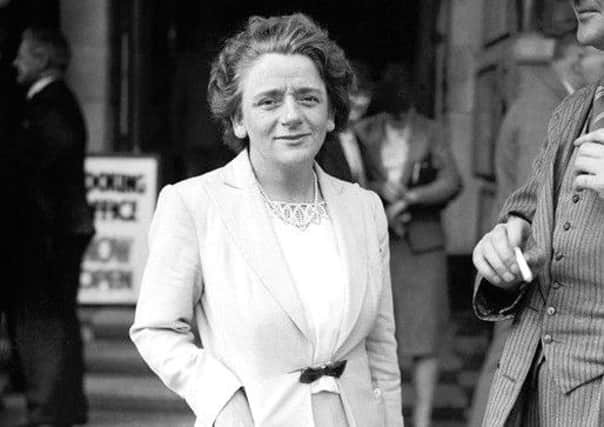Rachel Reeves: Poverty loathed by pioneering northern MP is still a reality


The Division Bell Mystery tells the tale of an American financier who is found shot dead in the House of Commons, and a parliamentary private secretary who turns detective to try to solve the murder. Ellen was an avid reader of Agatha Christie novels, and named her kettle ‘Agatha’ after her heroine. During my summer holidays I visited Greenway in Devon, Christie’s stunning holiday home overlooking the River Dart – now owned by the National Trust.
I enjoyed her fascinating mix of crime fiction and political commentary so much that I have written the foreword for the book that has just been reprinted by the British Library 86 years after it was first published in 1932.
Advertisement
Hide AdAdvertisement
Hide AdBorn into a poor family in Manchester, Ellen served as a junior minister in Churchill’s coalition government in the Second World War before serving in Clement Attlee’s transformative post-war government.
Ellen worked tirelessly to improve education standards and social justice and she became a national figure when she helped organise the 1936 Jarrow Crusade. Her constituents marched to London to demand the right to work and protested against Jarrow’s 80 per cent unemployment rate following the closure of its shipyard and steelworks.
Standing at just 4ft 10ins with flame-red hair that matched her left-wing politics, she earned a variety of nicknames including Red Ellen and the Fiery Particle. Of her many achievements and speeches, there is one particular quote from her that remains in my mind. “I loathe poverty,” she said. “I don’t just mean being hard up and having to do without things for a bit. I mean poverty as an institution, the deep grinding health-destroying poverty in which 70 per cent of the people in this country live.”
She died more than 70 years ago in 1947 after a lifetime trying to eradicate poverty and improve people’s lives. So, I cannot help wondering what she would make of Britain today that has changed so much, but where so many people are still struggling to make ends meet.
Advertisement
Hide AdAdvertisement
Hide AdWhen Ellen was first elected in 1924 as the MP for Middlesbrough East, she was among just four female MPs. Through the campaigning work of Ellen and many others on women’s suffrage, there are now 208 female MPs in Parliament following – a record high. The progress is welcome although we still have some way to go, given the figure is still below half of Westminster’s total of 650 MPs.
But in other areas, Ellen would be furious about the lack of progress. She spearheaded education reforms that saw the school leaving age raised from 14 to 15. Her tenure as Education Minister also saw the introduction of free school milk, improvements to school meals and an increase in university scholarships.
Having attended Manchester University on a scholarship, she recognised their importance. Her education started at the age of six when she began attending what she described as “a filthy elementary school with the five classes in one room”.
I cannot imagine what she would make of the changes today which have seen free school meals being rolled back, university fees reaching a crippling high of more than £9,000 a year and grants replaced by student loans.
Advertisement
Hide AdAdvertisement
Hide AdUnemployment in the 1920s and 1930s was cruelly high – especially in Northern towns and industrial areas. Unemployment today may be at a record low, but millions of people face in-work poverty through low wages and precarious job conditions in the fast-growing gig economy.
The nature of work today is very different and is scarring families and communities. The advance of artificial intelligence in the workplace, though welcome in many ways, could see many roles made redundant.
According to the GMB union last year, up to 10 million people – nearly a third of the workforce – did not have secure employment, creating concerns about the impact on their security, health and family life. The wider structural changes in our economy, including zero-hours contracts and the rise in self-employment, have meant many more people feel insecure and stressed in their jobs. But it is not just the world of work where positive reforms are now in reverse.
The NHS is Labour’s greatest achievement and testament to the hard work of Ellen and her parliamentary colleagues including Nye Bevan and Edith Summerskill. But the NHS today is chronically short of funds, waiting lists are lengthening and many of the overseas doctors and nurses upon whom the NHS relies are leaving in droves. Like many other public services, the NHS is in a far worse place under this Government than it should be.
Advertisement
Hide AdAdvertisement
Hide AdDespite Ellen’s work to end injustice, there are so many challenges we face to create well-paid and secure jobs, better public services and a stronger economy. The poverty she loathed is still a reality for many. We need more modern-day Ellens to help us achieve a more equal society – between men and women, North and South and rich and poor.
Rachel Reeves is the Labour MP for Leeds West.